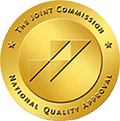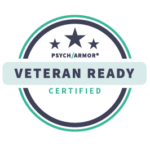Watching someone you care about endure the invisible challenges of trauma can leave you feeling uncertain and helpless. Post-traumatic stress disorder (PTSD) doesn’t just affect the individual who has experienced the trauma — it can also deeply impact their loved ones.
As you try to support them, you might feel unsure of what to say or how to act, but know this: your presence, understanding, and compassion are more powerful than you might realize. Learning how to support someone with PTSD is a journey that requires patience, empathy, and a willingness to learn.
How PTSD Can Present?
PTSD is a mental health condition that can develop after a traumatic event, such as an accident, assault, combat, or loss of a loved one. Its symptoms, both physical and psychological, can cause significant distress. Understanding these symptoms is crucial for providing the right support.
PTSD typically presents four categories of symptoms:
Individuals with PTSD may experience flashbacks or distressing thoughts related to their trauma. These memories may resurface unexpectedly, causing intense emotional and physical reactions. Flashbacks can be deeply unsettling, as they may cause the individual to feel as if the trauma is happening again.
To cope with the distressing memories, individuals may avoid reminders of the trauma. This might include staying away from certain places, people, or activities linked to the traumatic event. Avoidance behaviors can lead to social withdrawal and isolation, making it harder for loved ones to connect with the person.
PTSD often leads to negative changes in the person’s thoughts and emotional well-being. They may experience feelings of hopelessness, guilt, or numbness. Relationships can suffer, as the individual may become emotionally distant or irritable. They might also struggle to find joy or interest in things they once loved.
Hyperarousal refers to heightened physical and emotional responses. This can include irritability, difficulty sleeping, or being easily startled. People with PTSD may struggle with concentration or constantly feel on edge, which can make it difficult for them to relax or feel safe in everyday situations.
Tips to Help Someone with PTSD
If you know someone who is dealing with PTSD, it’s important to be patient and compassionate. Here are some practical steps on how to support them in their living with (and healing from) PTSD:
One of the most valuable things you can provide is simply being present. People with PTSD often feel isolated and alone in their experiences. Letting them know you are there to listen and support them can make a big difference. While it can be tempting to offer advice or fix the situation, sometimes the best thing you can do is to listen without judgment. Avoid pressuring them to talk about the trauma if they’re not ready, but make sure they know you are available whenever they feel they can discuss it.
It’s important to respect the person’s lived experience, even if you yourself don’t fully understand it. PTSD can bring about intense emotions, and your loved one may react in ways that seem unpredictable or out of proportion. Avoid dismissing or minimizing their experience by saying things like “Just get over it” or “You’ll be fine.” Such comments, though sometimes well-intentioned, can invalidate their struggles and worsen their sense of isolation. Instead, acknowledge the pain they’re going through and offer your support without trying to change or give an opinion on their feelings.
To support someone with PTSD, educate yourself about the condition. Understanding its symptoms and impact on mental health can help you offer the right support. Read articles, books, or attend workshops to deepen your understanding. Being informed helps you anticipate challenges and offer appropriate support. It also prevents unintentionally saying or doing things that may hinder their healing. This allows you to be a more empathetic and effective support system.
Healing from PTSD is not linear. Your loved one may experience periods of progress followed by setbacks. It’s important to be patient and understanding during these times. Some days may feel like everything is going well. But then something may trigger the trauma, and the person might relapse into intense emotional distress. Expecting these ups and downs can help you avoid feeling frustrated or helpless as their loved one. Recognize that PTSD is a complex condition that requires time, care, and understanding to manage.
Supporting someone with PTSD can be emotionally draining. Without taking care of your own needs, you may burn out. Ensure that you’re well, set boundaries on how much or what type of support you can provide, and seek support from others for your own problems. When you’re balanced, you’ll be able to offer consistent, caring support to the person with ADHD. Remember, self-care is crucial for sustaining long-term support. By prioritizing your well-being, you ensure that you can be there for your loved one when they need you most.
While your support can make a significant difference, it’s also important to encourage your loved one to seek professional help. Therapy, particularly cognitive behavioral therapy (CBT) and EMDR (Eye Movement Desensitization and Reprocessing), can be incredibly effective in treating PTSD. Medication may also be prescribed to help manage symptoms, particularly if the person is experiencing depression or anxiety alongside PTSD.
Heal Addiction with Dual Diagnosis Treatment at First Steps Recovery
If you or someone you know is struggling with both PTSD and addiction, seeking comprehensive care through a dual diagnosis treatment program can be life-changing. At First Steps Recovery, we specialize in helping individuals heal from the complexities of PTSD and addiction together. Our compassionate team provides personalized treatment that addresses both mental health and substance use challenges, helping you take the first step toward lasting recovery. Contact us to learn more.


















